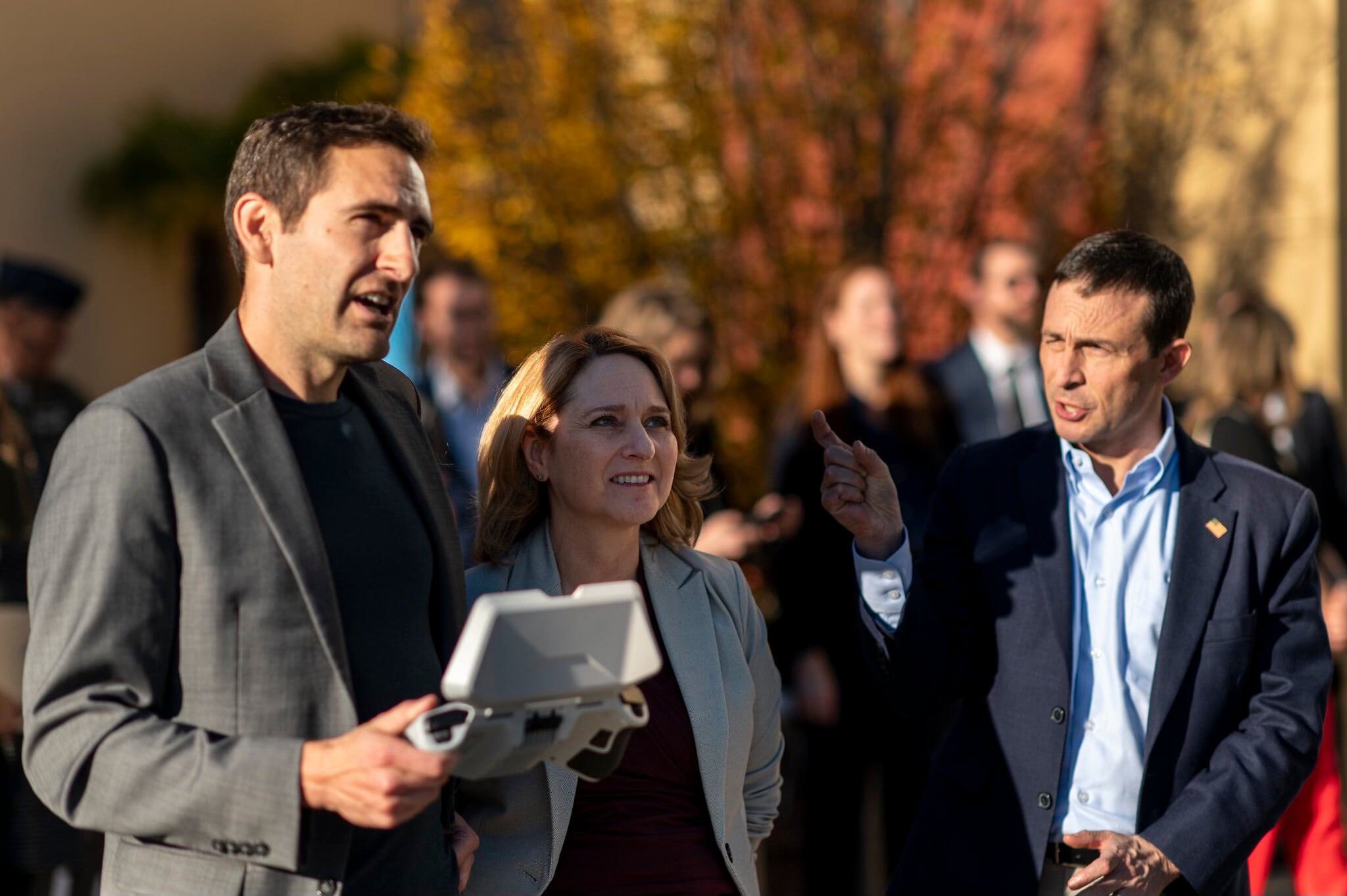WASHINGTON — While U.S. companies struggle to fill cybersecurity and artificial intelligence positions, Australia has too few jobs to keep its talent at home, leaving it vulnerable in an increasingly hostile cyber environment, defense industry leaders said.
Australia is investing millions of dollars into research and development to close gaps in the country’s cyber defense apparatus, they told the Australian Defence Science, Technology and Research Summit in Sydney on June 20.
And while the talent pool for workers with for AI and machine learning in Australia is deep, Anton van den Hengel, director of the Centre for Augmented Reasoning at the Australian Institute for Machine Learning, said their are simply not enough jobs and career opportunities in the country to keep them at home.
“We’ve made very little — very little — progress towards artificial intelligence,” he said.
The U.S. faces a critical cyber labor shortage, with some 700,000 cybersecurity positions open nationwide, according to estimates from the White House. More than 35,000 job openings are currently posted on the Indeed hiring wesbite using the search term “Artificial Intelligence.”
Van den Hengel, who also works as a director of applied science at Amazon, and other industry leaders at the summit pointed to the government’s inability to compete with tech companies as a major issue when expanding the country’s AI abilities. In both the U.S. and Australia, governments come up against the draw of private industry, creating high salary costs and other the hurdles to attracting and retaining talent.
“Defense no longer has the best tech,” he said, noting that private companies have committed billions of dollars to develop technologies and have the open positions to attract workers in the AI field.
The Defence Science and Technology Group, a part of the Australian defense department aimed at providing science and technology support to national security interests, hosted the summit.
Private-sector competition intensifies for AI talent
With high salaries and access to breaking-edge technologies, the private AI field has become increasingly lucrative. In recent years, many western counties, including the U.S., have turned to the private sector to compete with investments made by China.
Van den Hengel said outsourcing to the private sector only goes so far. Governments have to try and keep track of the technologies coming out of companies while also trying to understand them deeply enough to figure out their defense applications, he said.
In November, the Australian government said it would invest $10 million in innovative AI tech. The move followed the September announcement that Australia would partner with Britain and U.S. in a new working group, known by the acronym AUKUS, to share advanced technologies, including AI.
Kate Devitt, the chief scientist of Trusted Autonomous Systems, said Australia specifically needs experts in the field of deep learning and natural language processing compared to companies such as Google and Meta as well as specialists in reinforcement learning.
“We lack the digital infrastructure and investment required to enable the human capital with these skills to flourish in universities,” she said. “These gaps make Australia vulnerable and dependent on the choices of our allies and our rivals.”
Trusted Autonomous Systems is Australia’s first defense cooperative research center. It partners the country’s defense industry and research organizations with Australia’s defense department to develop autonomous and robotic technology.
While Devitt said the “obvious” answer is more investment in technical AI capabilities and infrastructure, she said that Australia needs to be decisive in its investments. As a medium-sized country, the government must use its limited resources to make “scrappy” decisions that yield outsized impacts, she said.
Catherine Buchaniec is a reporter at C4ISRNET, where she covers artificial intelligence, cyber warfare and uncrewed technologies.






